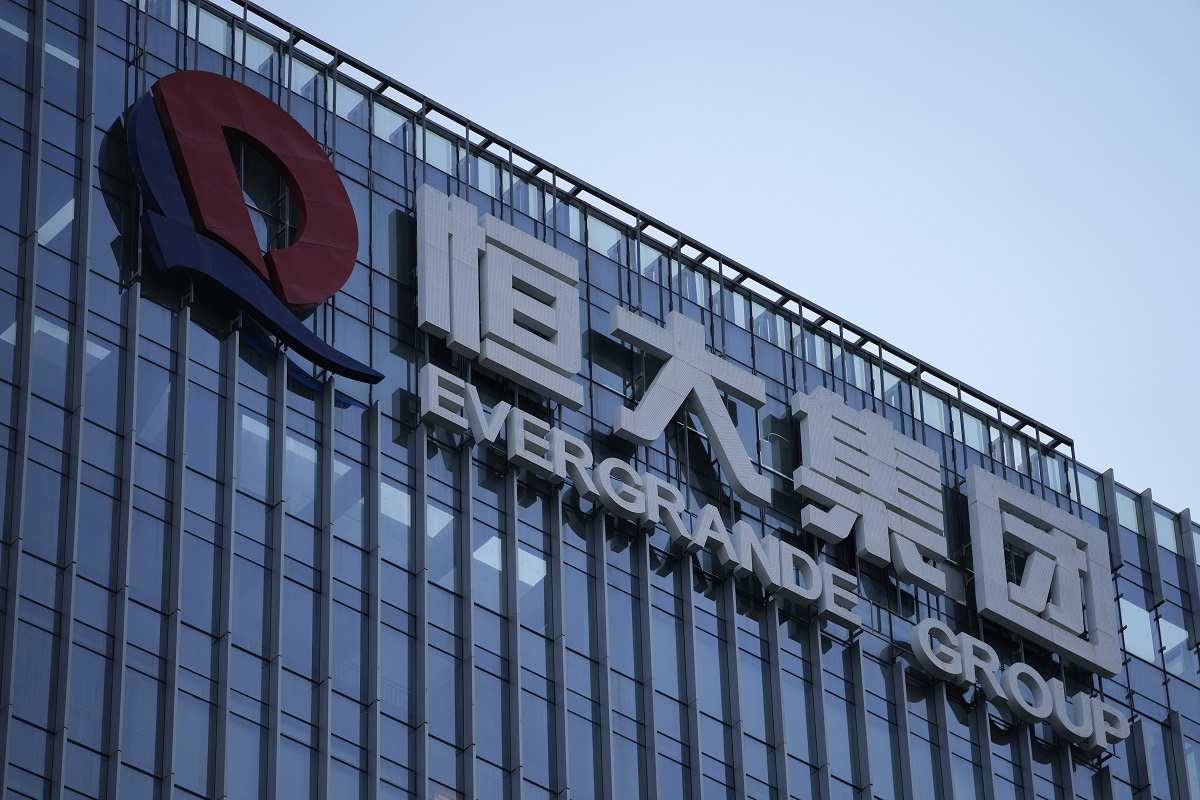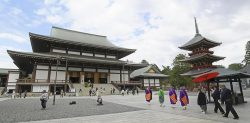Court Orders China Evergrande Property Developer to Liquidate after It Failed to Reach Debt Deal

The Evergrande Group headquarters logo is seen in Shenzhen in southern China’s Guangdong province, Friday, Sept. 24, 2021.
12:48 JST, January 29, 2024
HONG KONG (AP) — A Hong Kong court on Monday ordered property developer China Evergrande Group to liquidate after it was unable to reach a restructuring deal with creditors.
Judge Linda Chan said it was appropriate for the court to order Evergrande to wind up its business given a “lack of progress on the part of the company putting forward a viable restructuring proposal” as well as Evergrande’s insolvency.
The liquidation order is likely to impact China’s financial system, even as authorities try to prevent a selloff in the Chinese stock market. Evergrande’s liquidation will likely also lessen confidence in the property sector, which has been slumping as developers struggle to meet their obligations following a crackdown on excessive borrowing in the sector.
Evergrande had been granted a brief reprieve in December after it said it was attempting to “refine” a new debt restructuring plan of more than $300 billion in liabilities.
Fergus Saurin, a lawyer representing an ad hoc group of creditors, said Monday he was not surprised by the outcome.
“The company has failed to engage with us. There has been a history of last-minute engagement which has gone nowhere,” he said.
Saurin said that his team had been working in good faith in the entire process and that Evergrande “only has itself to blame for being wound up.”
The judge is expected to provide more reasons for the liquidation order during a separate court session Monday afternoon.
Evergrande, the world’s most indebted property developer, is one of many property firms that ran into trouble when Chinese regulators cracked down on excessive borrowing in the real estate sector.
The company first defaulted on its financial obligations in 2021, just over a year after Beijing clamped down on lending to property developers in an effort to cool a property bubble.
Real estate drove China’s economic boom, but developers borrowed heavily as they turned cities into forests of apartment and office towers. That has helped to push total corporate, government and household debt to the equivalent of more than 300% of annual economic output, unusually high for a middle-income country.
Others developers including Country Garden, China’s largest real estate developer, have also run into trouble, their predicaments rippling through financial systems in and outside China.
The fallout from the property crisis has also affected China’s shadow banking industry — institutions that provide financial services similar to banks but operate outside of banking regulations, such as Zhongzhi Enterprise Group. Zhongzhi, which lent heavily to developers, said it was insolvent.
Top Articles in News Services
-

Survey Shows False Election Info Perceived as True
-

Hong Kong Ex-Publisher Jimmy Lai’s Sentence Raises International Outcry as China Defends It
-

Japan’s Nikkei Stock Average Falls as US-Iran Tensions Unsettle Investors (UPDATE 1)
-

Japan’s Nikkei Stock Average Touches 58,000 as Yen, Jgbs Rally on Election Fallout (UPDATE 1)
-

Japan’s Nikkei Stock Average Rises on Tech Rally and Takaichi’s Spending Hopes (UPDATE 1)
JN ACCESS RANKING
-

Producer Behind Pop Group XG Arrested for Cocaine Possession
-

Japan PM Takaichi’s Cabinet Resigns en Masse
-

Man Infected with Measles Reportedly Dined at Restaurant in Tokyo Station
-

Israeli Ambassador to Japan Speaks about Japan’s Role in the Reconstruction of Gaza
-

Videos Plagiarized, Reposted with False Subtitles Claiming ‘Ryukyu Belongs to China’; Anti-China False Information Also Posted in Japan

























